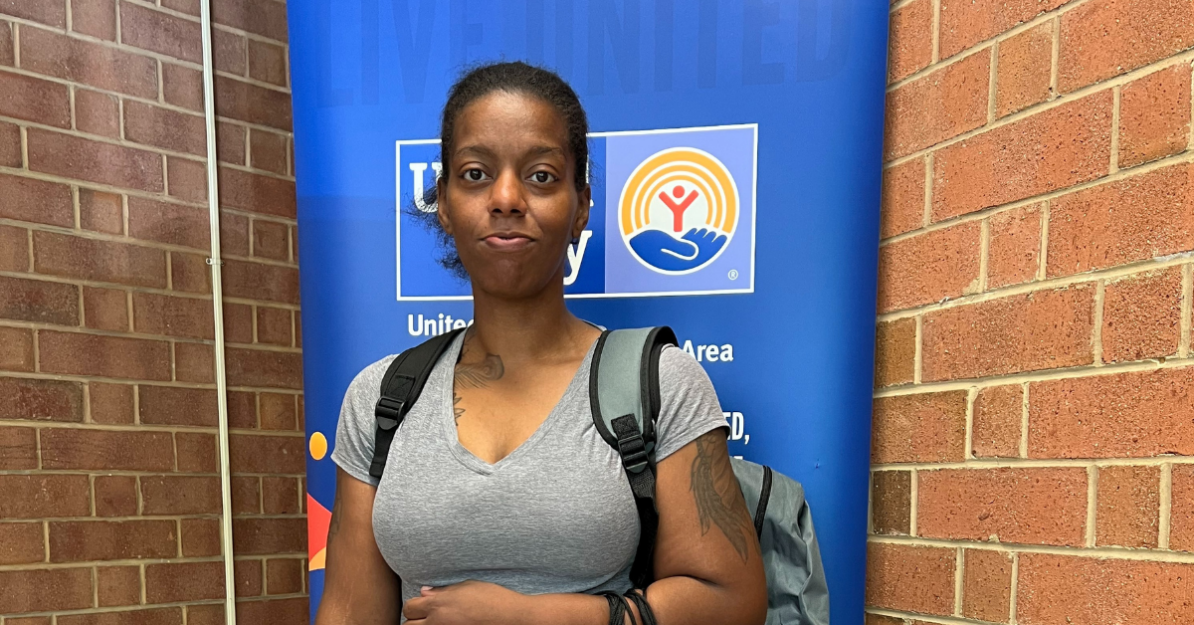
“It’s like it has to get worse before it possibly gets better.”- Kavonnie Hines
When we think of the holidays, many of us are gift shopping for our friends and family or planning the menu for holiday meals or maybe even putting up festive decorations around the house. Some of us are already crossing off our shopping wish lists, but for others in our region like Kavonnie Hines, the harsh reality of not being able to provide a bountiful table or presents for her three children, hits hard. “I am very open and honest with my children. Of course, my 3-year-old doesn’t understand really, but my nine 9-year-old and my 12-year-old, I do speak to them, and I let them know that this is life and this is what it is. So, they’re very appreciative of what they have, and they understand that.”
No parent should have to have those difficult conversations with their children during the holiday season. But Kavonnie faces the unique challenge of being a single mother of three and raising a child with special needs. She currently works part-time as a Starbucks manager in Arlington, VA to keep her family afloat while navigating a complex web of red tape. She tirelessly applies to various programs in hopes of receiving financial assistance for rent, childcare, Wi-Fi, healthcare and more. And as if that wasn’t hard enough, Kavonnie recently had to reduce her work hours to care for her 3-year-old daughter who is autistic and non-verbal. This has created a new set of obstacles like being able to afford her rent, utilities, food, healthcare, reliable childcare, and even stable Wi-Fi for her two older children to complete homework assignments.
Despite applying for rental assistance, Kavonnie has yet to receive aid and is now three months behind on her rent with the possibility of eviction looming overhead. With the holidays fast approaching, she worries about where her family will be living or if she will be able to put enough food on the table.
Kavonnie’s family is just one of the nearly 500,000 low and moderate-income households in our region that face these hardships daily. She is part of the ALICE (Asset Limited, Income Constrained, Employed) population which represents an estimated 1.3 million adults and children in the National Capital Area that earn more than the Federal Poverty Level ($26,500 annually for a family of four) but less than the basic cost of living for the county/state in which they live. Kavonnie’s struggles with making difficult decisions each day to ensure her family has basic necessities.
In Virginia alone, 28% of households below the ALICE Threshold* are rent burdened, which means they spend 30% or more of their income on rent. Another 43% of households below the ALICE Threshold are severe rent burdened, which means they spend 50% or more of their income on rent.
Kavonnie and many of our ALICE neighbors may be unaware of the resources available to them to help alleviate some of these financial burdens. United Way of the NCA works diligently to ensure that all community members, especially the ALICE population, have equitable access to and distribution of health, education, and economic opportunity resources.
We were not only inspired by Kavonnie’s strength and perseverance, but her selflessness towards others in her community that may be facing similar challenges. Her love for children and desire to see others get the help they need, pushes her to be an advocate for ALICE members across the region.
*A family of four in the National Capital Area would need to make a combined income of $101,281 annually ($8,440 monthly) to be above the ALICE Threshold.



